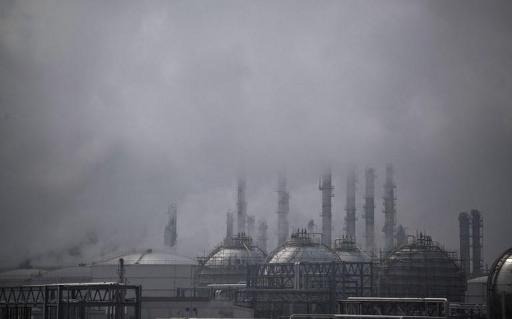Air that is more heavily polluted increases the risk of getting a coronavirus infection and developing a more severe form of the illness, according to a recent report.
Previous studies on the link between Covid-19 and air pollution focused on how certain coronavirus measures (lockdowns and travel bans) had a positive impact on the environment, but the study published on Wednesday by the Superior Health Council (HGR) has shown that there is another, more health-focused connection.
"Environmental impact studies show that climatic and air pollution parameters are linked to increased virus contamination rates," the report read.
The findings stated that even a small increase of 1 microgram in the concentration of fine dust in the air is associated with longer ventilation time in hospitalised Covid-19 patients and possibly even with an increase in mortality of 8-11%.
Related News
- EU and US pledge to reduce methane emissions in energy and agriculture
- Radical measures needed to stick to Paris Agreement, says UN report
- Drop in share of Belgian company cars with diesel engine
"On the other hand, as Covid-19 primarily infects the respiratory tract, it is not surprising that increased air pollution also has a negative impact on susceptibility and development of the disease," the report stated.
The council added that, although it is unclear what mechanism lies behind the relationships between temperature, humidity and contamination, this also confirms previous reports that the virus could be influenced by temperature and humidity, as it "thrives in winter, but as soon as the temperature rises, transmission decreases."
Need for long-term improvements
Despite having a negative impact on the economy, as well as leading to increased psychosocial problems, particularly among the elderly, the young and other vulnerable groups in society, the lockdowns and other measures put in place did temporarily result in reduced air pollution across Europe.
However, overall, the fact that such strict measures were mostly imposed on a short-term basis, alongside the fact that the increased use in plastic-based protective equipment including disposable face masks resulting in a large amount of medical waste being created, have shown that the small effect lockdowns and travel bans will be counter-acted.
According to the 2020 World Air Quality report released earlier this year, over half (58%) of cities in Belgium averaged dangerous levels of air pollution that exceeded the World Health Organisation (WHO)'s annual targets, even with the lockdown-related reduction in emissions.
Ahead of the 2021 United Nations Climate Change Conference (COP26) in Glasgow in November, the WHO announced it is working on a report that will raise health arguments and focus on the urgency of tackling the climate crisis from a health aspect.
The Superior Health Council's report stressed that, as other studies have shown, several climate targets have become under even more increased pressure, not only because limiting global warming has become ever more critical, but also because of the current health crisis.
In light of these findings, the council argued that the current coronavirus pandemic has once again exposed the vulnerabilities of the health system, and called for a more interdisciplinary, holistic approach to assessing the effects of COVID- 19.
"This demonstrates the importance of the interactions between different health domains that need to be studied in order to develop a coherent prevention and control strategy," the experts argued, adding that environmental and health data need to be "structurally integrated into the monitoring and warning system in preparation for future viral outbreaks."

